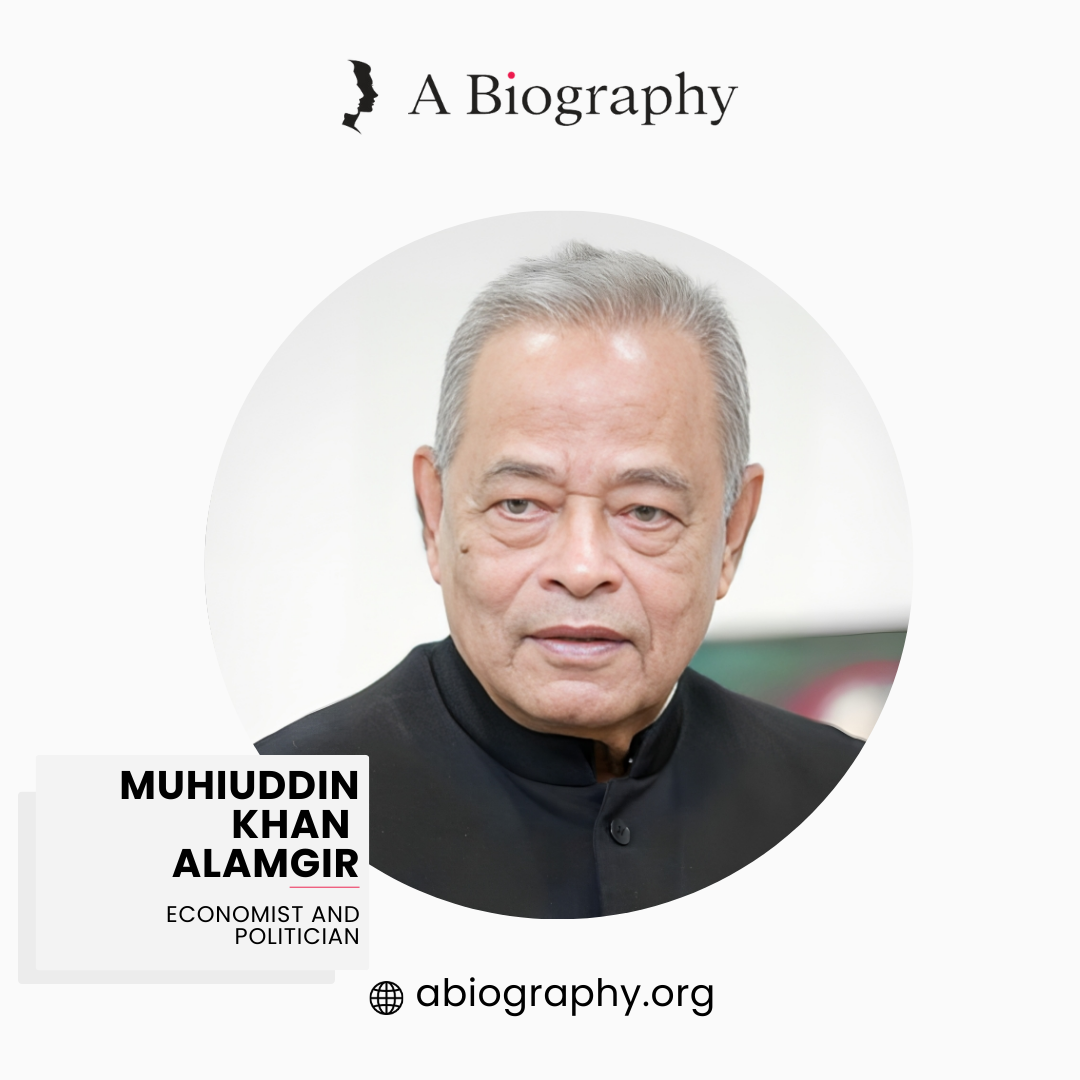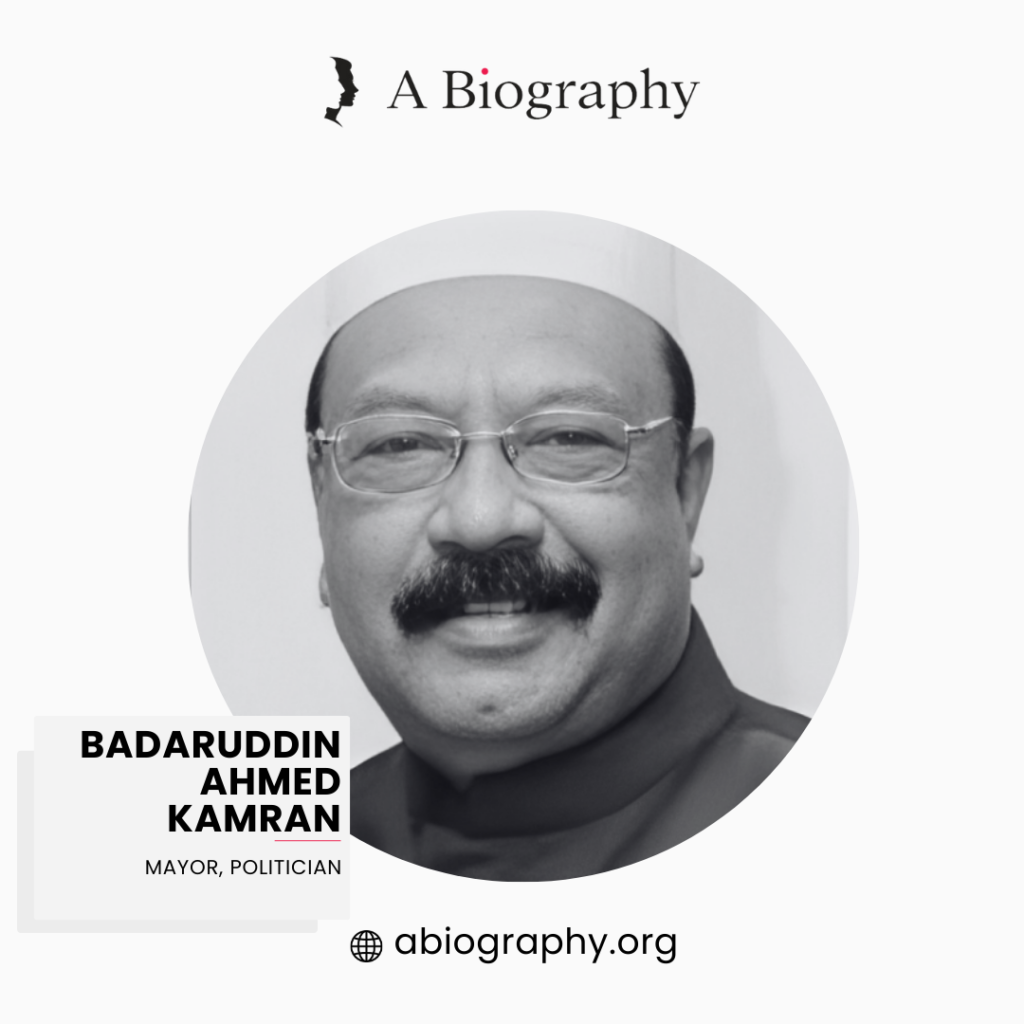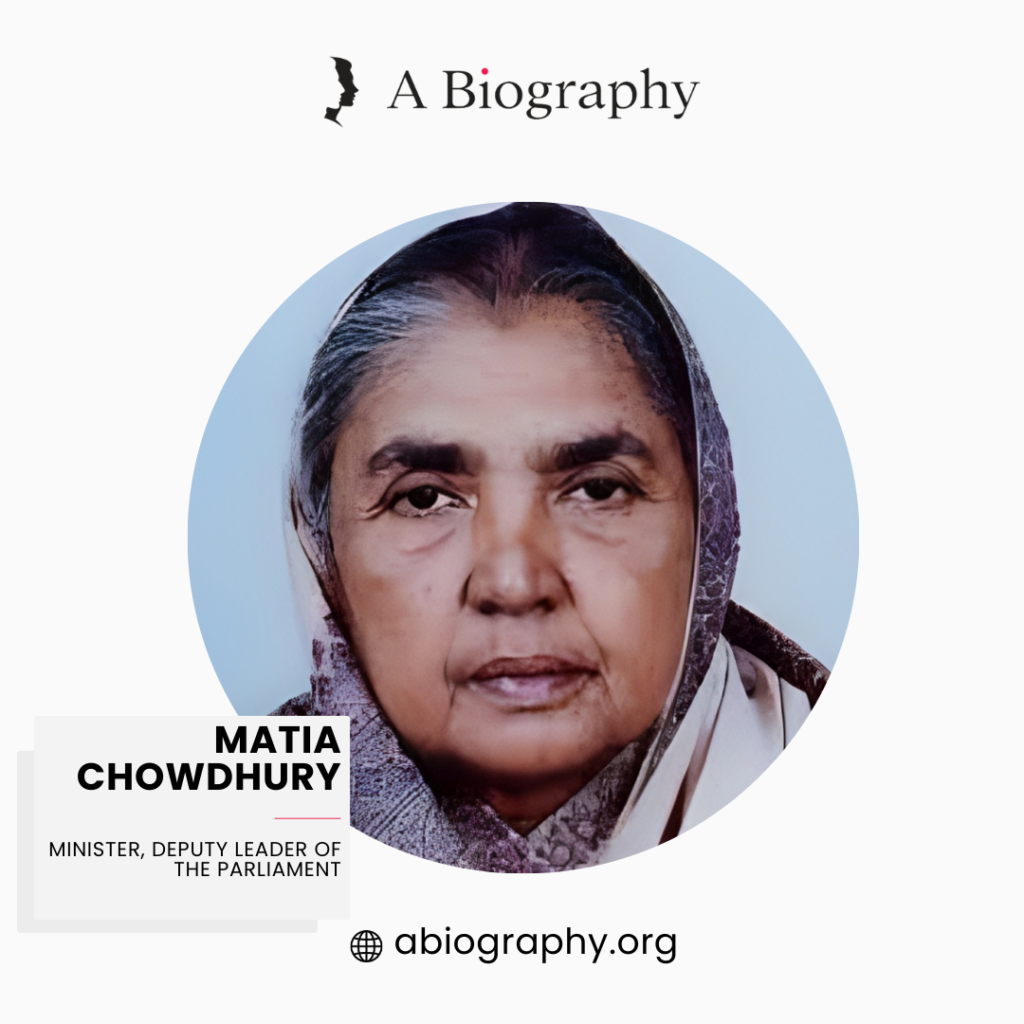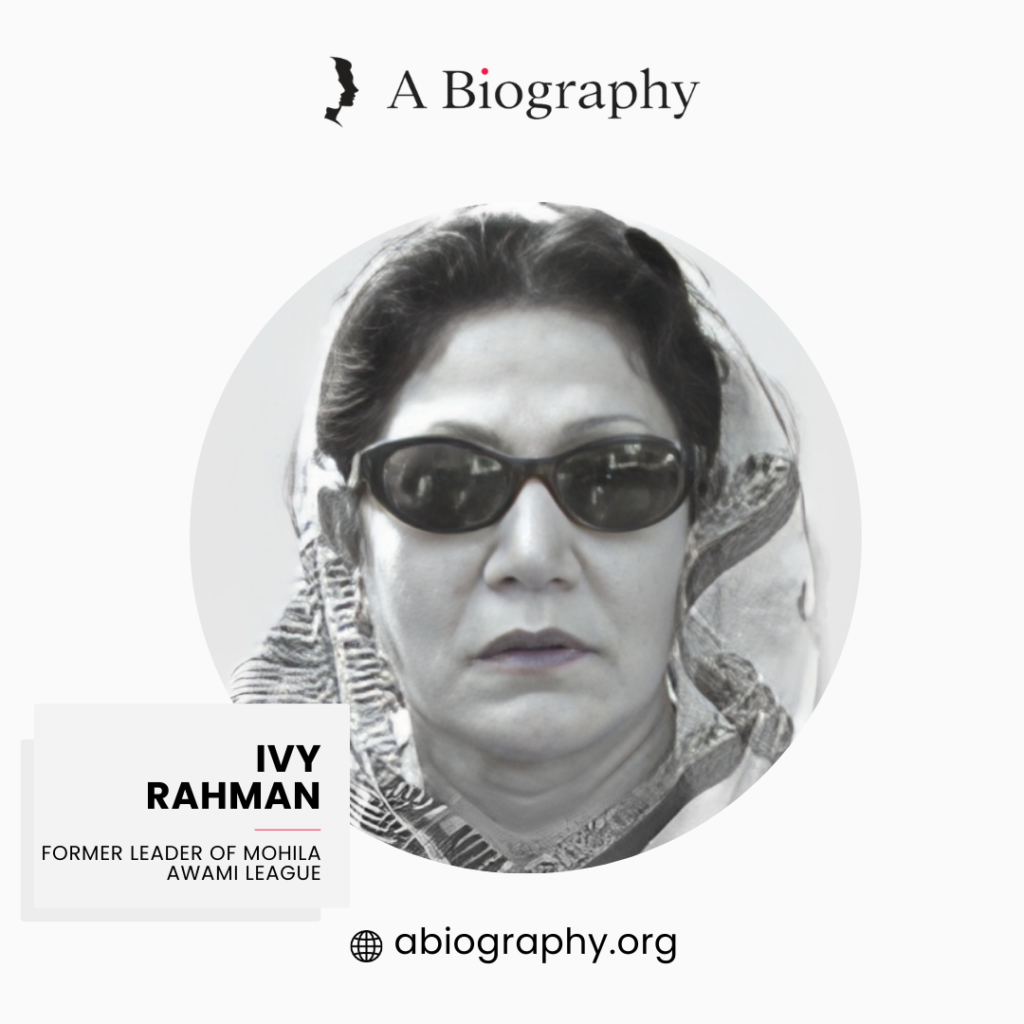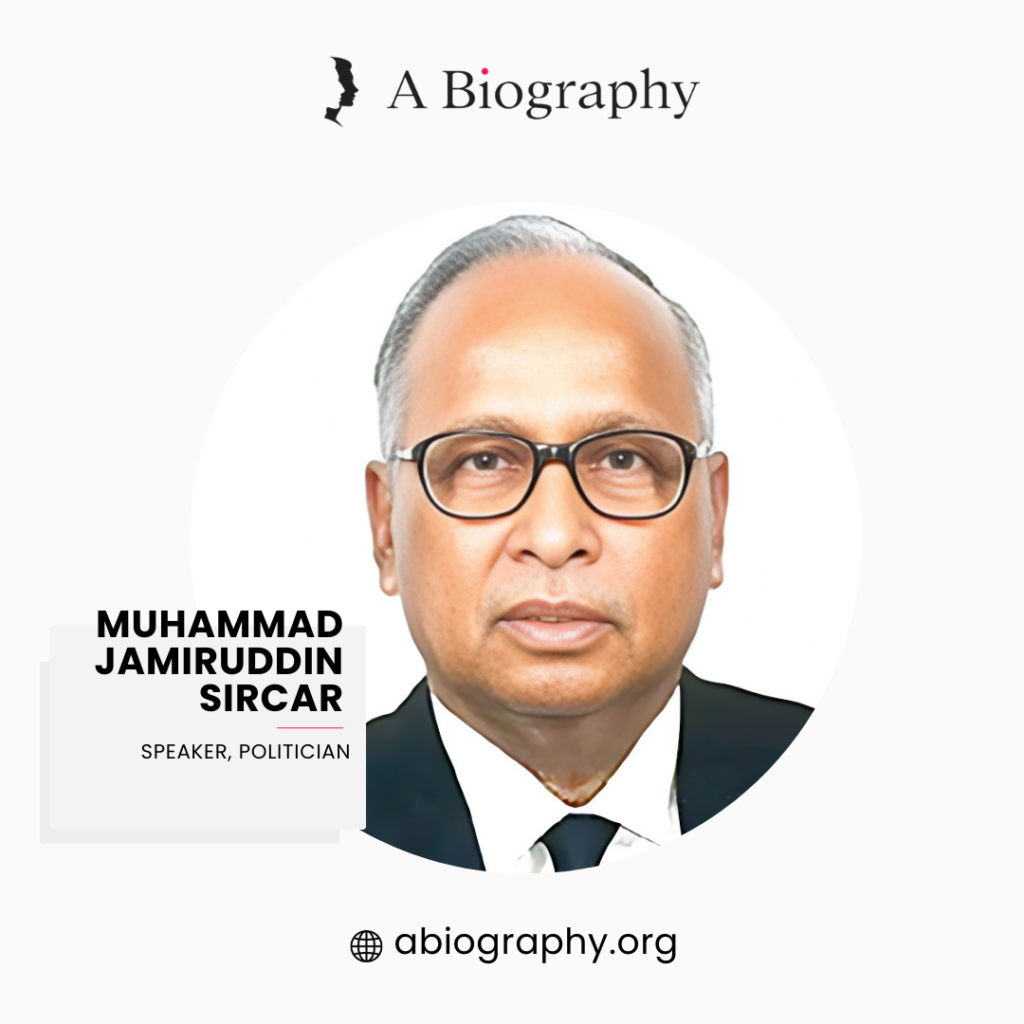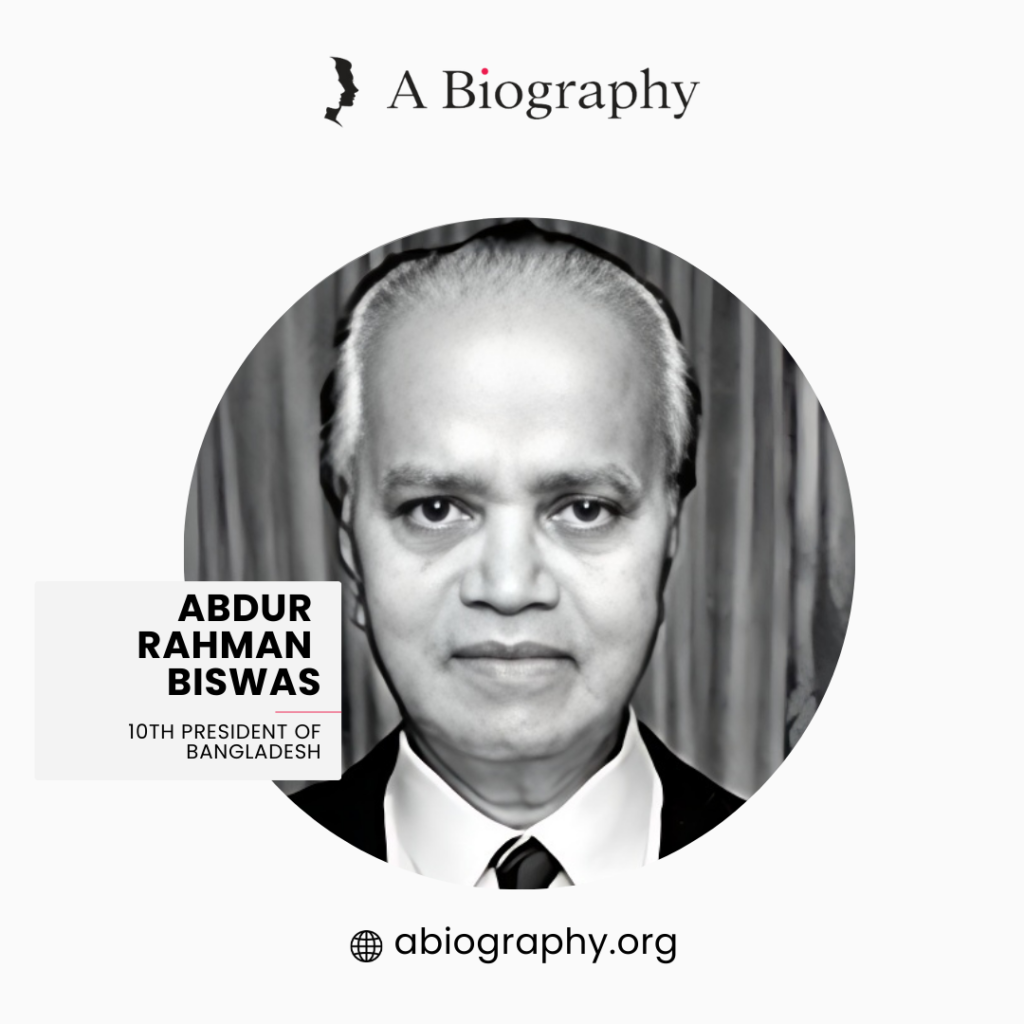BIOGRAPHY OF Muhiuddin Khan Alamgir
Economist and politician
(1 March 1942- Present)
Table of Contents
ToggleIntroduction
The ex-Minister of Home Affairs for Bangladesh from 2011 to 2013 is Muhiuddin Khan Alamgir. Similarly well-known in Bangladesh, he is an economist, government official, author, and political figure. His life is very contentious, and he has a long list of rivals. Despite facing controversy, he has accomplished a lot in his career.
Throughout his long and diligent career, Muhiuddin Khan Alamgir has had only one constant guide, which is loyalty to the nation of Bangladesh and Prime Minister Sheikh Hasina.
Life of "Muhiuddin Khan Alamgir" At a Glance
Known For: The current Member of Parliament for Chandpur-1 is Dr. Muhiuddin Khan Alamgir, a politician, economist, government employee, author, and ex-minister from Bangladesh. He serves on the Bangladesh Awami League’s advisory committee.
Born: 1 March, 1942
Birthplace: Kachua, Chandpur.
Father: Educationist Ashek Ali Khan
Nationality: Bangladeshi
Children: Jalal Alamgir
Political party: Bangladesh Awami League
Early Life and Education
Alamgir was born in Kachua, in the Chandpur region. He received his economics master’s degree from the University of Dhaka. He then obtained his master’s and doctorate in development economics from Boston University. Gus Papanek was in charge of his Ph.D. program at Boston University. Muhiuddin Khan Alamgir was an accomplished economist who oversaw BIDS, taught economics at Dhaka University, and published several writings.
Career
At the University of Dhaka’s Economics Department, Alamgir began his career as a professor. The Department of Economics hired Mohiuddin Khan Alamgir as a lecturer in 1962, and he held the position until 1965. He took part in the government of Pakistan that year and worked there for roughly 32 years in various capacities.
Participating In The Civil Service
Alamgir started working for the Pakistani government in 1965. He held a variety of positions before Bangladesh attained independence, including subdivisional officer at Naogaon. As the deputy commissioner of Mymensingh for the Pakistani government, he was working during the 1971 war of liberation.
Following achieving independence from Pakistan in 1971, Bangladesh created its own civil service. Alamgir received a position in the newly established Finance Ministry, where he made a substantial contribution to the creation of Independent Bangladesh’s first set of budgets. He held the position of district commissioner in Jessore from 1976 until 1979.
Afterward, he had many positions within the Finance Ministry. In 1993, Alamgir took on the role of Secretary for the Ministry of Science and Technology. Following that, the Planning Commission assigned him as a member.
He worked as Sheikh Hasina, the head of the Bangladesh Awami League’s secretary from 1996 to 1997. He oversaw discussions to extend the landmark Ganges Water Sharing Treaty throughout the period with India. Additionally, he participated in the last treaty’s negotiations and helped broker a peace agreement with Chittagong Hill Tracts rebels. After 32 years of government work, he resigned in 1997.
Awami League Official Appointed
He started getting elected to political posts in the Awami League’s administration in the latter part of the 1990s. As a member of the Awami League’s cabinet in 1997, Alamgir served as State Minister for Planning.
He also served for a limited period as the minister of civil aviation and science. The Fifth Five-Year Plan, which he started, had an impact on Bangladesh’s development plan from 1997 to 2002.
Personal Life
There is not much information available about Muhiuddin Khan Alamgir’s private life. His marital status is a secret to most people. However, he received some distressing news about his son, Jalal Alamgir.
An associate professor at Boston University in the United States, Dr. Jalal Alamgir, drowned while swimming with his wife in Thailand. He passed away in Pattaya, Thailand, on December 3, 2011. The sudden death of Dr. Jalal Alamgir at the age of 40 shook Prime Minister Sheikh Hasina to her very core.
Years of Imprisonment and Torture
Alamgir’s first attempt at entering politics failed in 2001. He anticipated facing significant challenges once the BNP regained control, considering the BNP’s animosity toward him for his part in creating the Janatar Mancha. He was correct. After spending a few months abroad, he returned to Bangladesh, where he was unlawfully detained and subjected to severe abuse. They pressured him to sign a document implicating Sheikh Hasina.
During his detention, he got assaulted and sodomized for refusing to submit. Dr. Alamgir claimed in his testimony that police had brutally assaulted him with bamboo weapons and glass bottles filled with water. They additionally denied him access to a diabetes medication.
On Dr. Muhiuddin Khan Alamgir’s behalf, the Global Importune petition signing team started addressing letters expressing worries to Bangladeshi government authorities somewhere around or during July 2002. Following global acclaim, the courts eventually decided Alamgir deserved to be set free, and he was. His release from prison was largely made possible by American Ambassador Harry K. Thomas.
Under a military-led interim administration, he was once more detained, accused, and found guilty in 2007. They jailed him until October 2008. The military-backed interim administration detained Alamgir for 20 months before freeing him on bail on October 21, 2008.
Muhiuddin Khan Alamgir remained devoted to the honorable prime minister and Awami League despite the torture, abuse, and assassinations hurled against him by the BNP and the army. It was never possible to restore the army’s reputation.
Alamgir was chosen to the legislature in December 2008 while on bail. During the 2014 elections, the Awami League coalition won two-thirds of the seats in parliament. He appealed his conviction and sentence on July 13, 2009, and the High Court vacated them.
Legacy
Make Production Sharing Contracts (PSCs) to enable foreign oil companies to conduct exploration and gas production in the nation. These agreements have been the subject of lengthy talks, but they have so far failed to conclude. Alamgir did its job and insisted that the involved governmental bodies address the issues, which led to the eventual settlement. Unquestionably, the PSCs were the single most important development of the 1990s that aided Bangladesh’s impressive economic expansion.
The next one is the Farakka Barrage. After building the Farakka Barrage, the Indian government significantly reduced the inflow of the Ganges entering Bangladesh by redirecting a portion of it to the Hooghly. Since 1975, agreements have continued in vain. PM Sheikh Hasina gave MKA the go-ahead to settle a water-sharing agreement. He also had success. That was the only change to the water-sharing agreement with India up until a few months ago.
There was a lot of contention regarding the rights and status of the minority who lived in the eastern Bangladeshi highlands. Conflicts over land ownership by Bengalis, who relocated tribe members forcibly, led to decades of warfare. Alamgir effectively settled a pact, guided by the prime minister, that put a halt to the rebellion and established the liberties of the hill tract minorities. The 17-year conflict that put an end to the insurgency was a notable accomplishment.
One more complicated problem had remained unresolved since the division and was impossible to solve. PM Hasina gave Muhiuddin Khan Alamgir the order to look for a solution to this conundrum. It took place in fragments of one nation inside fragments of another, and on occasion, fragments were inside fragments of fragments. Together with his Indian counterparts, Alamgir managed to come up with a plan of action that both parliaments could agree to.
Controversies
By accepting the position of CEO of The Farmers Bank Limited while still holding a government ministerial position, Alamgir sparked controversy. The central bank conducted an independent inquiry and revealed that he participated in customer loans while he was serving as chairman of his own independently founded Farmers Bank.
The inquiry into Bangladesh Bank additionally disclosed how Farmers Bank became a participant in fraud once it began doing business. The outcome is a severe lack of cash at the bank. The bank experienced an economic downturn and became, at a certain point, incapable of returning the funds belonging to the client. In terms of defaulted loans, Bangladesh Bank records that Tk 3.77 billion, or 7.45 percent, of its loans were defaulted.
Many executives among his colleagues handled enormous loans that they virtually looted. Alamgir disputes claims that he was involved in the incident. The police arrested several members of the company.
In November 2017, Muhiuddin Khan Alamgir, the former home minister and current chairman of the bank, resigned from his position due to the severe deterioration of the situation.
Books
Muhiuddin Khan Alamgir has bravely taken on challenges throughout his life. Between 2002 and 2008, he underwent a lot of hardships. It was difficult and painful for him to endure all that he went through. Alamgir published his memoir, My Days in Jail, in 2003. The book was an instant hit and went through three printings before the following year. His writing and publishing interests included numerous articles and textbooks on development economics.
Conclusion
In Bangladesh, Muhiuddin Khan Alamgir is a living example of a person who has displayed wisdom throughout his life. He was a devoted Awami League member who had made significant contributions to the country and his political party. It is impossible to dispute his contribution to the nation’s economic development. Although Alamgir experienced many difficulties and ups and downs throughout his life, he never gave up on himself.

